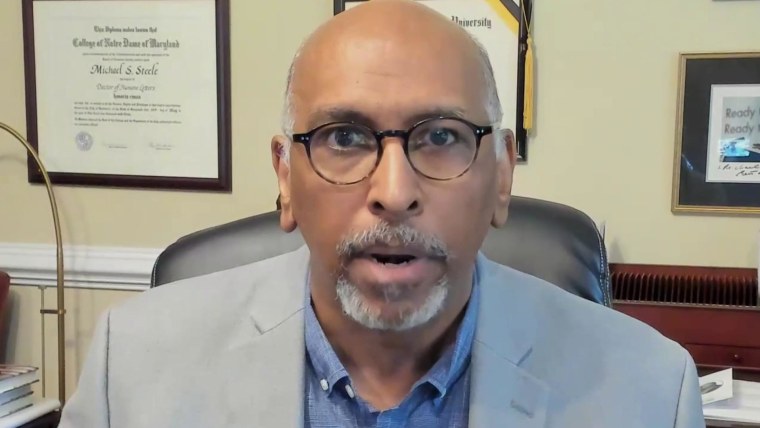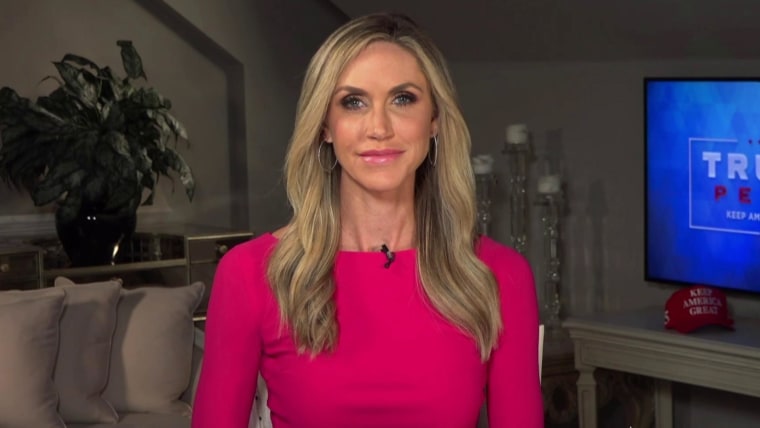WASHINGTON — President Donald Trump enters his party’s convention this week trailing former Vice President Joe Biden in every national poll as well as in key battleground states in recent surveys.
But advisers and allies say that Trump is in a better place than he was in 2016, and that internal polling shows the race tightening in a sign their attacks on Biden have been working. Key to their pitch going forward will be trying to convince the country that things are on the upswing because of Trump’s efforts, said aides inside and outside of the campaign.
Republicans say they are aiming to boost voters’ attitudes about the state of the nation with their convention this week, in hopes those feelings will carry over to their assessment of whether Trump deserves another four years in office.
“I think we are in a much stronger position than the public polls would indicate,” said Brian Walsh, president of the pro-Trump Super PAC America First, who said he’s looking for Trump to use the convention to lay out his vision for the next four years and contrasting that to Biden’s. “We always believed the race would be close, and we still believe so today.”
But selling a success story to an electorate where the vast majority believe the country on the wrong track may be a heavy lift. Whatever successes Trump’s allies plan to tout at the convention are overshadowed in opinion polling by the more than 175,000 deaths from coronavirus and a 10 percent unemployment rate, with 55 percent of Americans disapproving of the job he is doing, according to Gallup.
To have any shot at overcoming those feelings, the convention needs to remind Americans of better times, selling a vision for the future and contrasting a Trump and Biden presidency, said Ari Fleischer, former press secretary to George W. Bush. While Bush never faced as great a deficit in the polls as Trump in his re-election bid, he had to overcome an unpopular war and a country still feeling jolted by the Sept. 11 attacks.
“They need to remind voters of how good things have been — low unemployment, booming economy, destruction of ISIS, taking on China, all the things prior to the coronavirus,” said Fleischer, adding that Trump also needs to answer a pair of related, fundamental questions: “What is the future going to hold? What is the president going to do if he’s given a second term?”
1. Hopeful fear (or a fear-laced hope)
Despite the talk of a positive message, the convention is expected to start off with a message of fear, as Republicans present their vision of what the country would look like under a Biden presidency.
Speaking on the first night, when the theme will be “Land of Promise,” will be Mark and Patricia McCloskey, who became conservative culture war icons this summer when they stood on their front lawn and pointed guns at Black Lives Matter protesters in St. Louis.
Donald Trump Jr., whose primary role over the past four years has been attacking Democrats rather than pushing specific policy solutions or an agenda for the country, is expected to offer his own dark rendition of America under Biden.
“Expect Don to contrast his father’s positive policy vision for America with Biden’s far-left policy vision, which he will argue is designed to crush the working men and women of our country,” said one person familiar with his remarks.
Trump on Friday criticized the Democrats’ convention for what he called its pessimistic tone. Democrats, he said, “held the darkest and angriest and gloomiest convention in American history.” He then painted his own picture of a dystopian future, should he not win re-election.
“The damage that they inflict will not just last a year or an election cycle; it will echo for generations,” Trump said. “And we may never be able to escape, no matter how great our future leaders. We may never, ever escape from the damage that will be inflicted if the radical left takes over the presidency. We may never be able to — remember the Supreme Court — but we may never be able to do it. It’ll be too late. The country will go down so far that you’ll never, ever — I don’t care who you are — be able to bring it back.”
The takeaway from that likely messaging preview was less “Morning in America” than “Apocalypse Soon.”
2. The coronavirus question
While much of the convention messaging is expected to focus on Trump’s handling of the economy, crime, and immigration, the coronavirus that ended years of economic growth will be an unavoidable topic — and it’s unclear how Republicans will tackle that throughout the four-day convention.
Among the speakers who have been announced for Monday, at least two are expected to focus on the coronavirus — Amy Johnson Ford, a Virginia nurse practitioner who recently spoke at the White House about the importance of tele-health during the pandemic, and Tanya Weinreis, who owns a Montana coffee shop that benefited from coronavirus relief funding.
While not part of the convention program, Trump will hold a meeting at the White House on Wednesday with health care workers to discuss the pandemic. The coronavirus isn’t expected to be a major part of Trump’s convention remarks this week, though it will be addressed throughout the convention, said a Republican official.
Fleischer said it’s something he thinks should be addressed head-on.
“I’d have doctors and nurses thank the president for getting them the PPE,” he said. “I would have people who have been able to reopen thank the president for allowing them to reopen while also fighting the virus, I would have experts thank the president for shutting down flights from China.”
3. A more conventional unconventional convention
Unlike Democrats, who shifted to an entirely virtual convention in June, Republicans held out on the possibility of having a large, in-person gathering — first in North Carolina, then in Florida — until 30 days before the convention was set to start.
And they’re still trying to keep as many elements of a traditional convention as possible. A small number of delegates convened in Charlotte, North Carolina, on Monday to hold a roll-call vote nominating Trump.
Some of the speakers, like Vice President Mike Pence, will make their remarks live before an audience and Trump will have a crowd gathered on the White House South Lawn for his remarks Thursday, unlike Biden who spoke to a room of mostly reporters and aides. The Republican convention will also go longer and have more speakers.
Given the 30 days staffers had to shift to a mostly virtual convention, glitches remain a big risk, said one Republican official involved in the planning.
“Anyone would be lying if they said it wasn’t a challenge to go from Charlotte to Jacksonville to no Jacksonville,” said the official, calling it “an incredible feat” under normal circumstances to rework a convention in a month’s time.
4. From whence the crossover voter appeals?
Democrats devoted large chunks of their convention to trying to appeal to nervous Republican voters, with former Ohio Gov. John Kasich and former George W. Bush Secretary of State Colin Powell making the case for Biden.
Republicans say they will try to reach a similar potential crossover voter, but lack the big-name firepower: There won’t be any members of past Democratic administrations or former Democratic presidential candidates making their case for Trump — and no prior Republican presidents, vice presidents or long-time party figures either.
To make their case to Democrats, Republicans are set to rely instead on figures such as New Jersey Rep. Jeff Van Drew, who left the Democratic Party over the Trump impeachment, and Georgia state Rep. Vernon Jones, a Democrat who has endorsed Trump.
Some of the most well-known speakers will be members of Trump’s own family — each of his adult children will speak — and members of his administration, like White House counselor Kellyanne Conway and Secretary of State Mike Pompeo.













